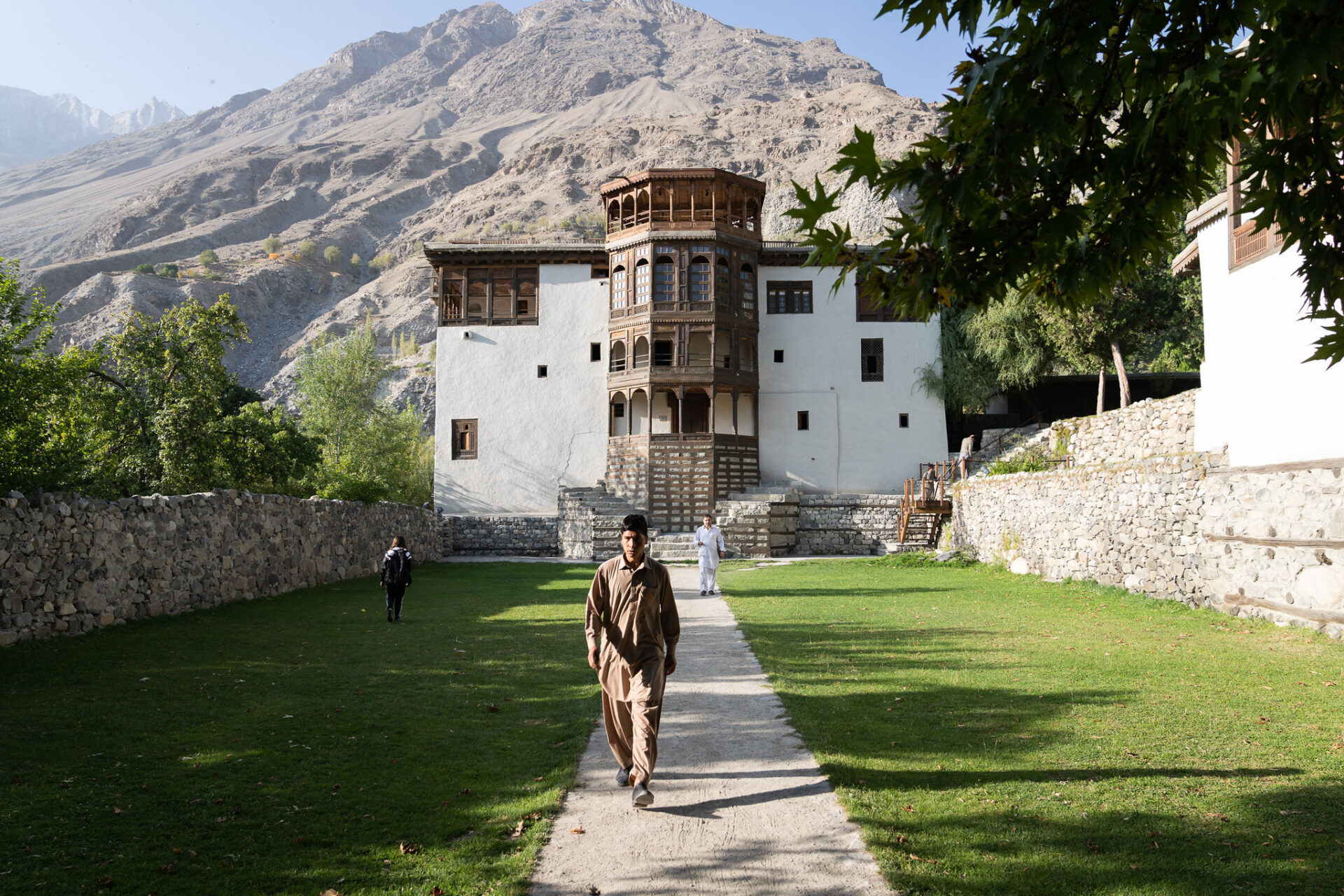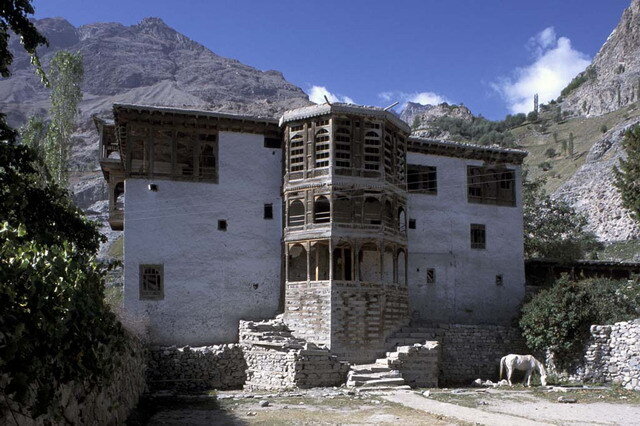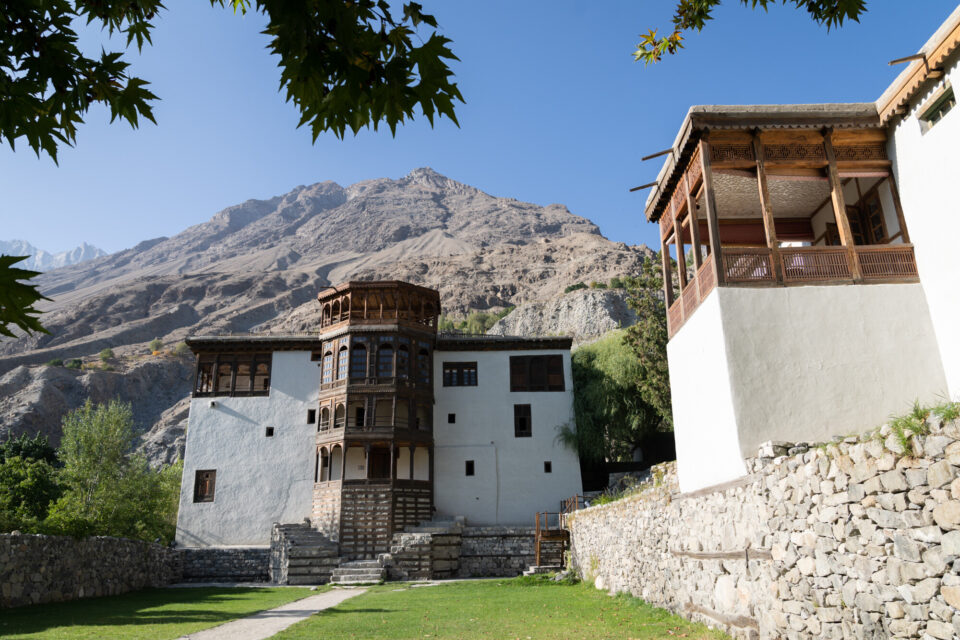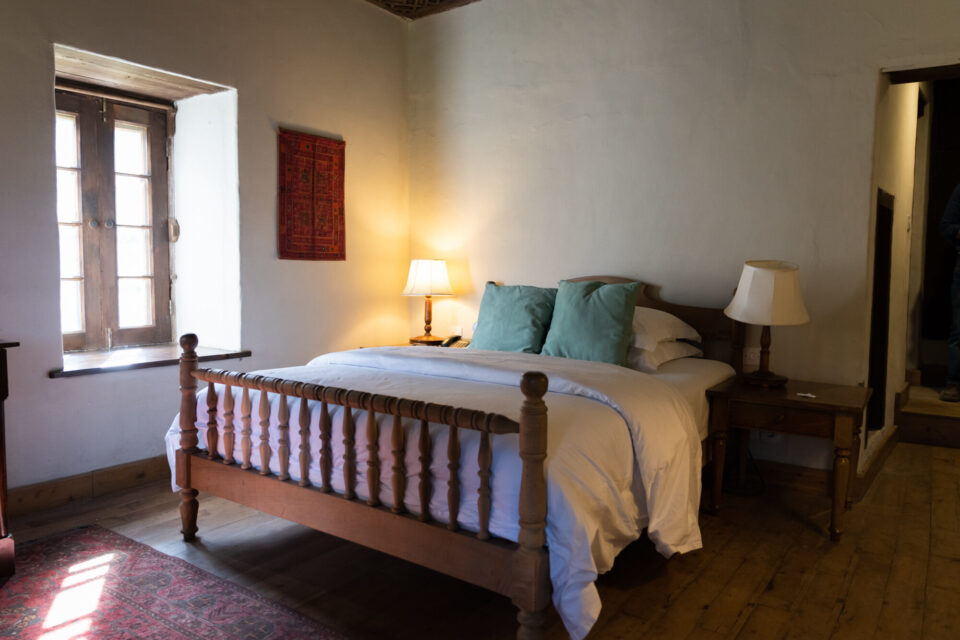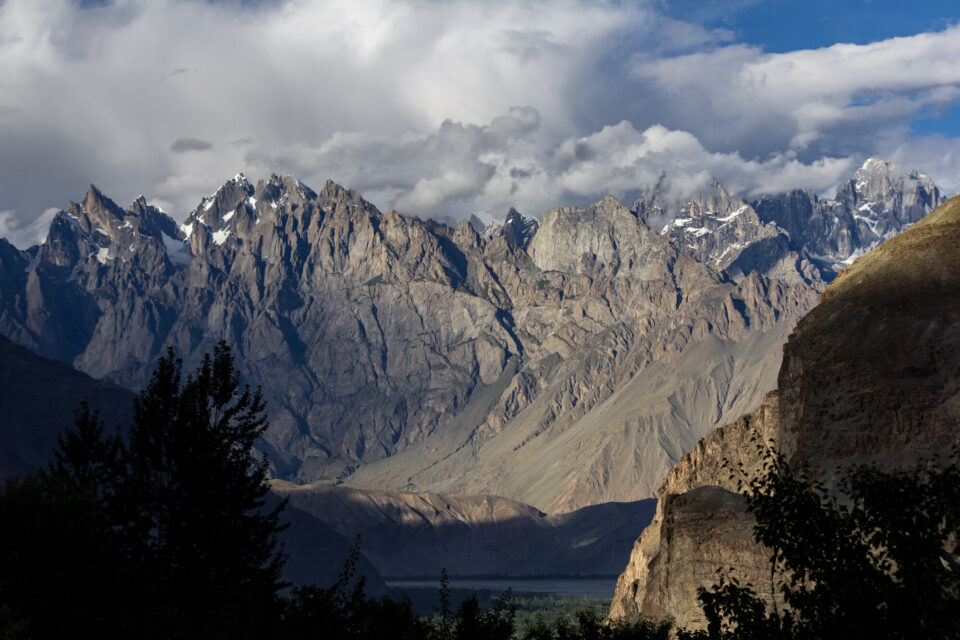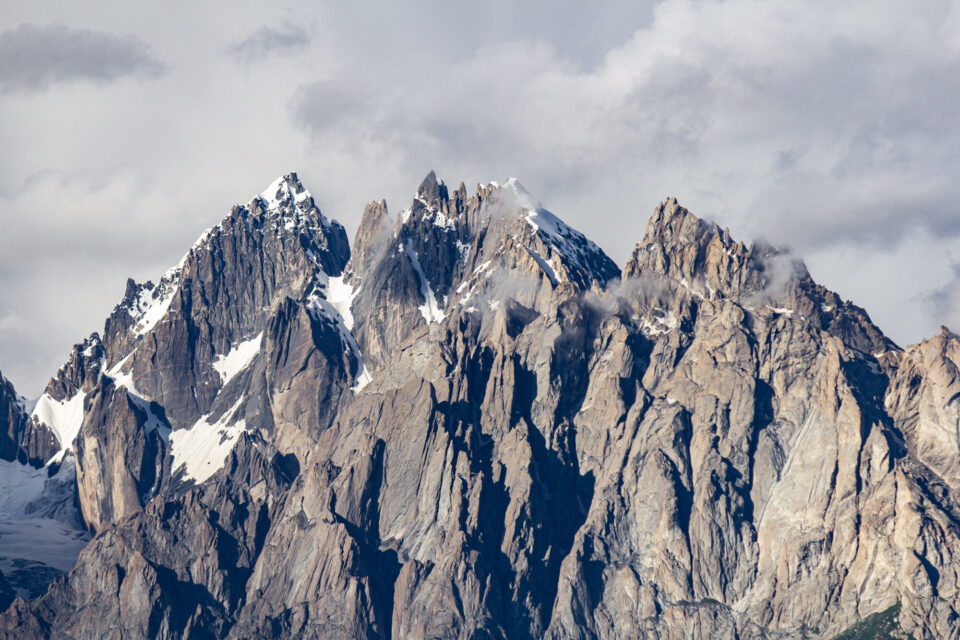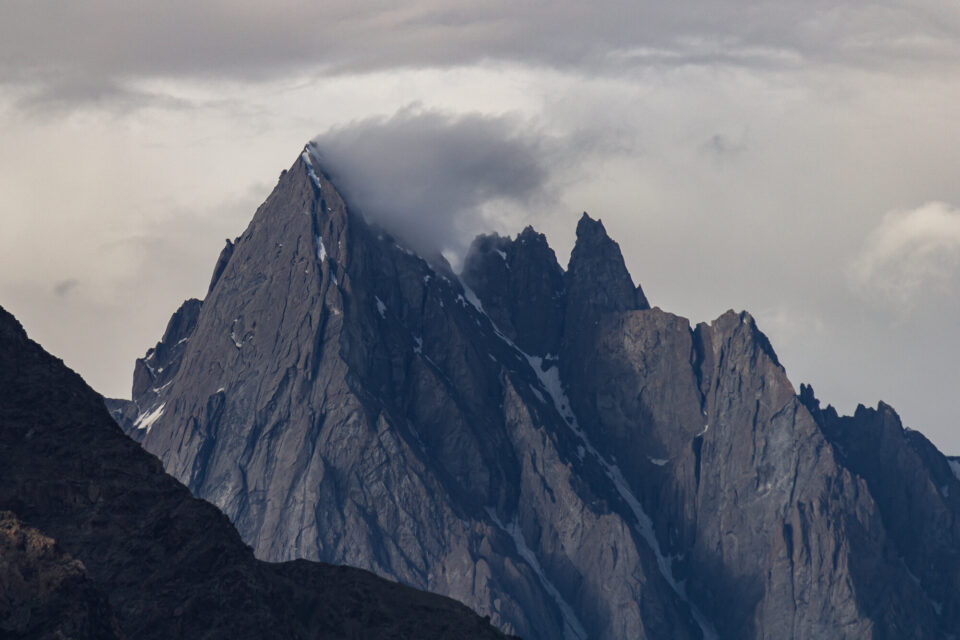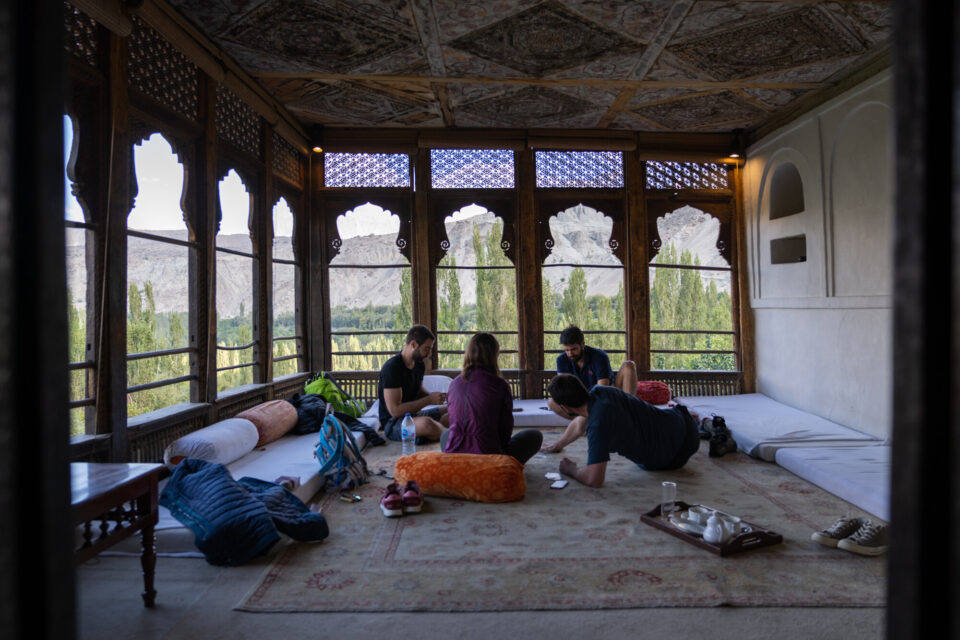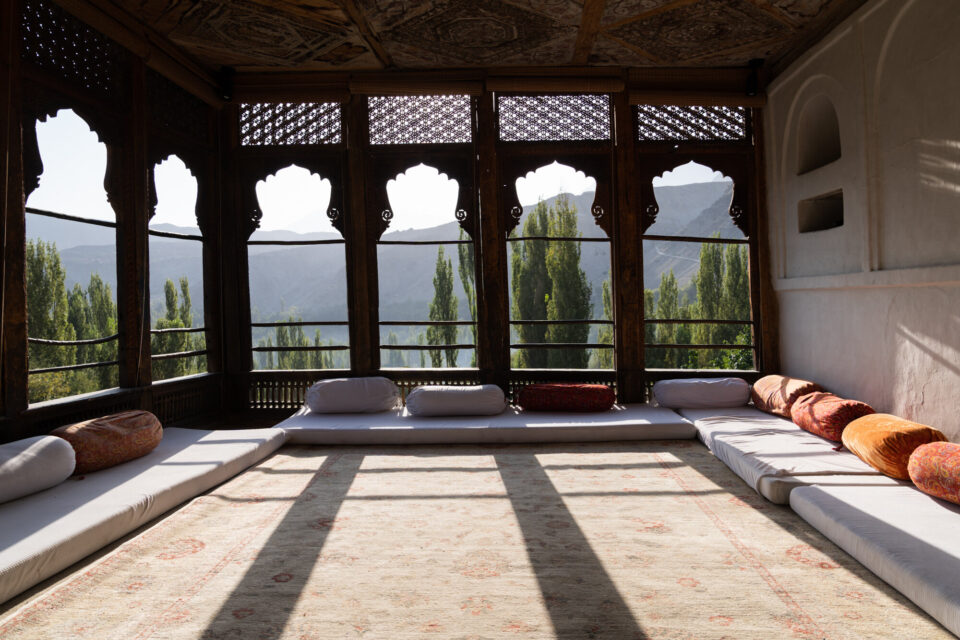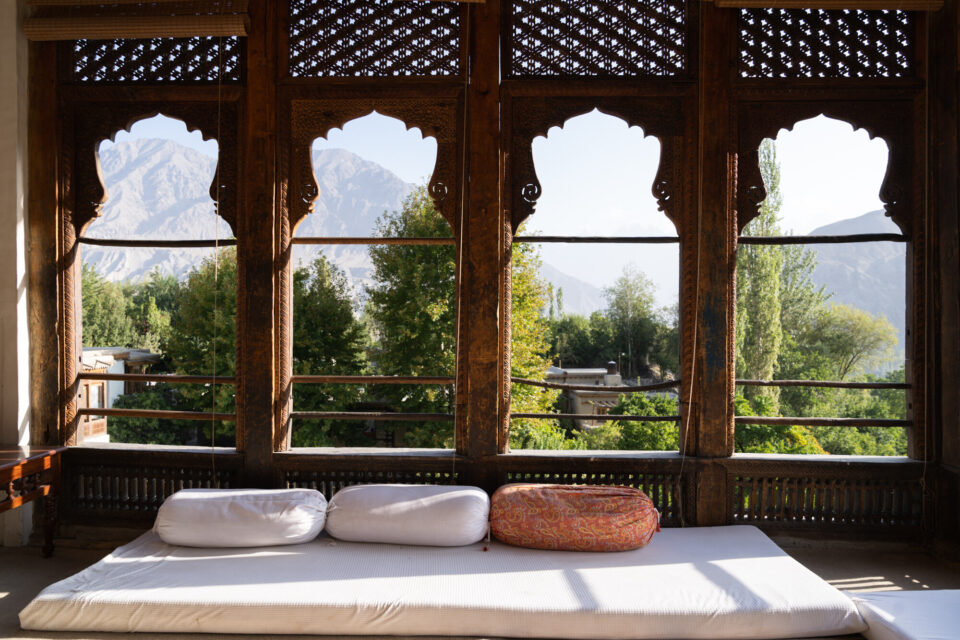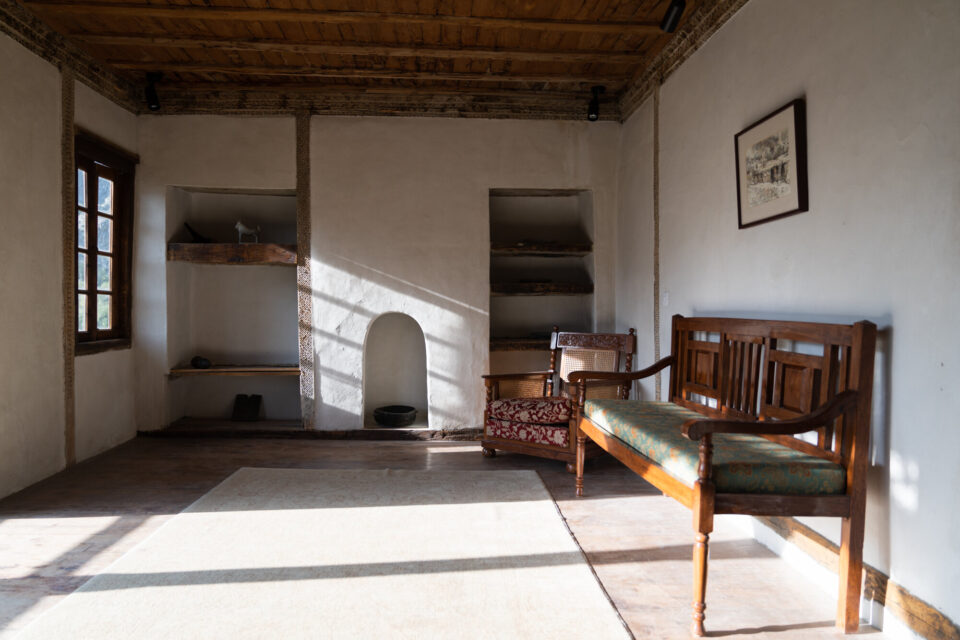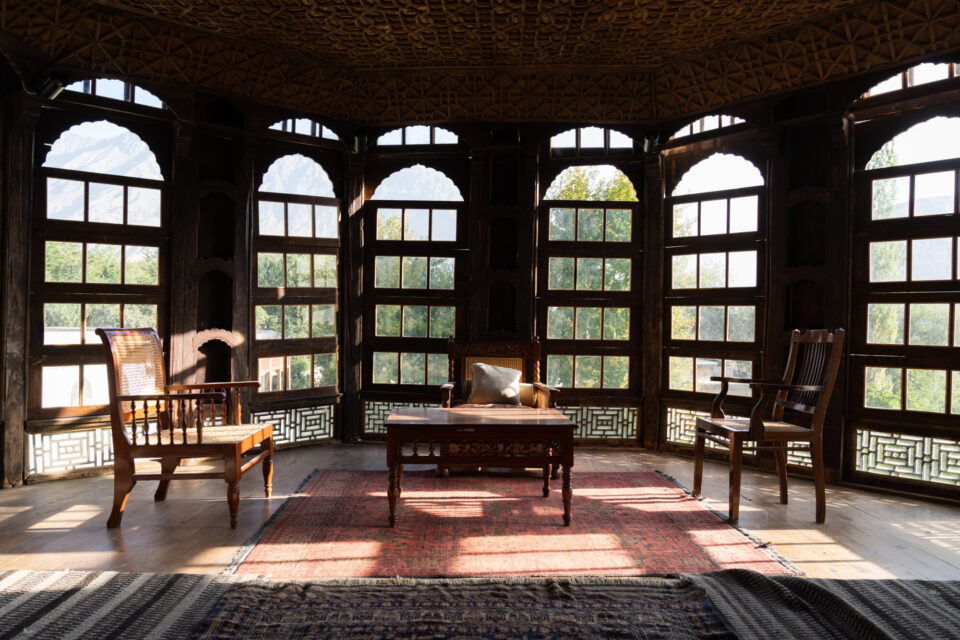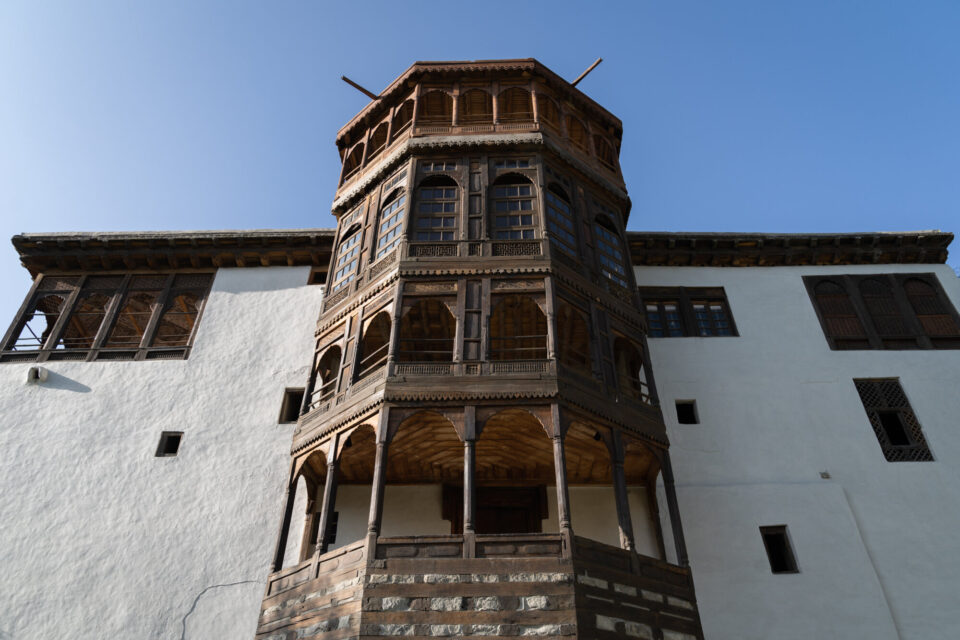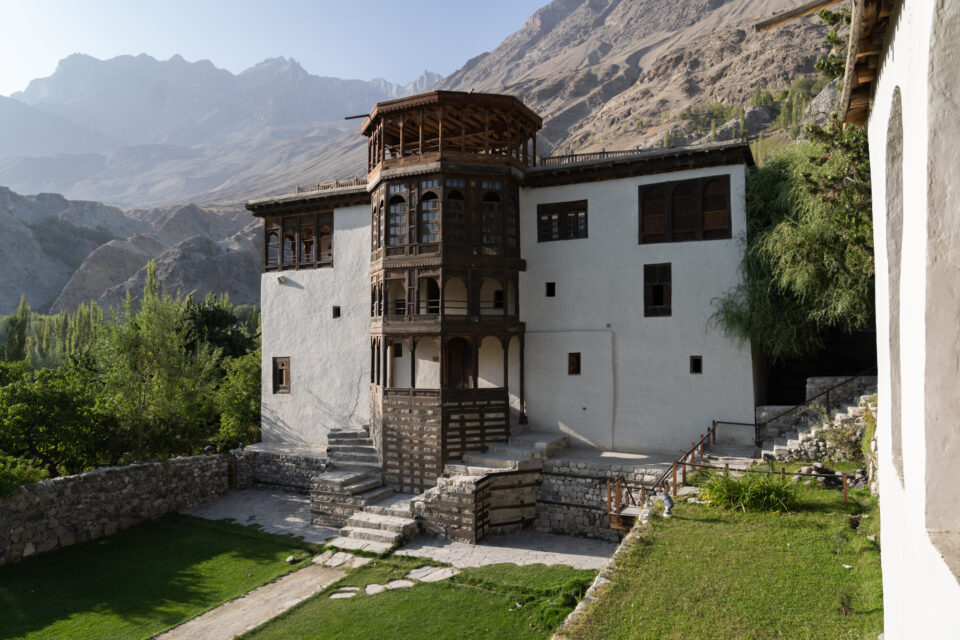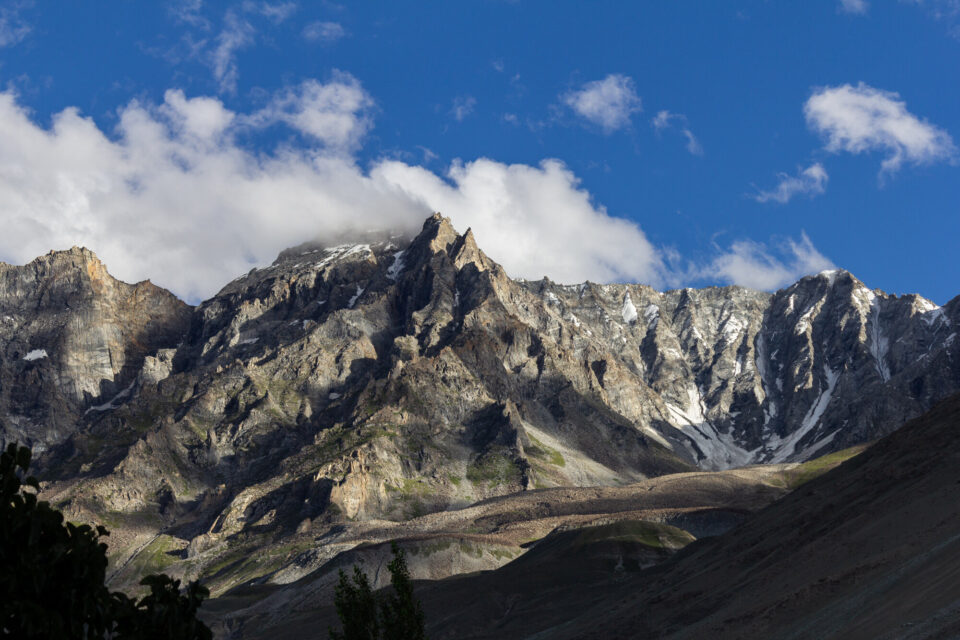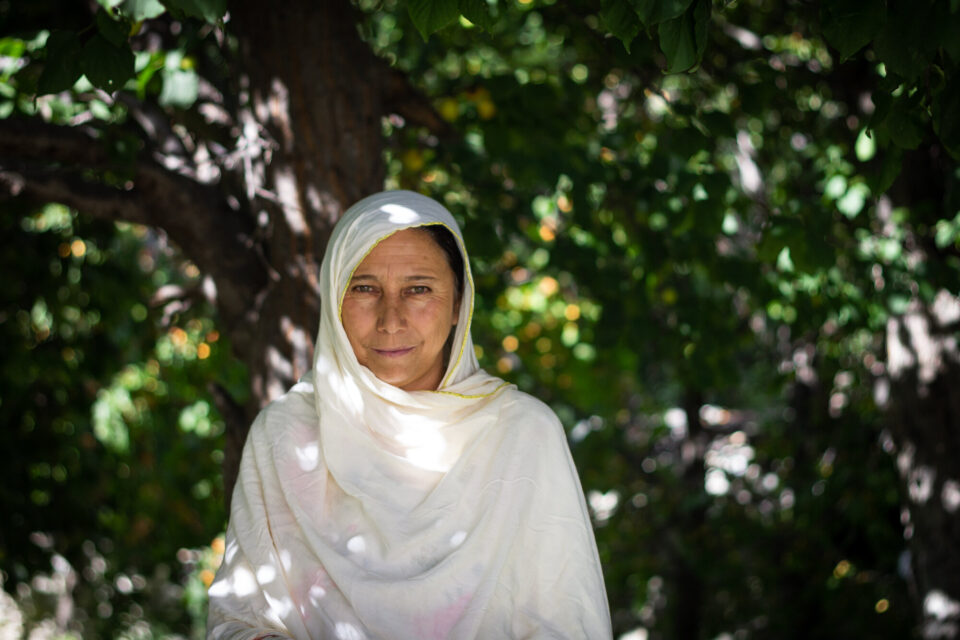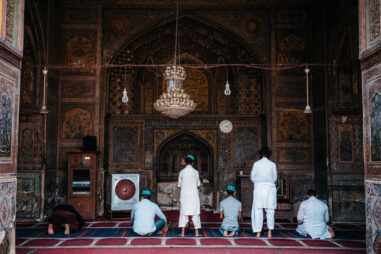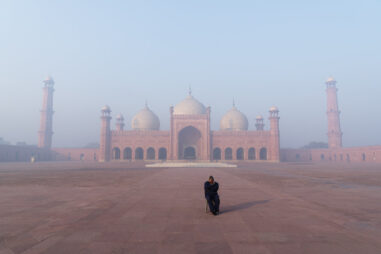
Built in 1840 by the Yabgo Raja Daulat Ali Khan, Khaplu Palace is the finest surviving example of a royal residence in Baltistan, a provincial autonomous region in Pakistan’s north east. The palace was constructed with the help of Kashmiri and Balti craftsmen and combines the local architectural style with influences from neighbouring regions including Tibet, Kashmir, Ladak and Central Asia.
The site of the palace was chosen, so the story goes, by rolling a large stone down from a nearby cliff; where the stone came to a stop, the palace was built. For over 100 years it remained the seat of the local ruler and his descendants continued to live there even after their kingdom was abolished. The last Raja of Khaplu who lived in the house died in 1983 and the palace began to fall into a state of dilapidation after.
In 2005, with funding from the Norwegian Ministry of Foreign Affairs, the Aga Khan Trust for Culture started restoration works; a process that took six years. Restoration was carried out following the Venice Charter; a set of guidelines, drawn up in 1964 by a group of conservation professionals, that provides an international framework for the conservation and restoration of historic buildings.
In 2011, the restored Khaplu Palace & Residence was opened as a 21 room heritage hotel under the Serena Hotel Group. It has since won numerous awards including a UNESCO Heritage Conservation Award.
I’ve stayed there twice and could not recommend it more highly. It’s certainly one of the most unique places I’ve ever stayed and also one of the most romantic. The views over Himalayan and Karakoram peaks are spectacular. I’ve tried to capture some of them here along with different aspects of the residence.
